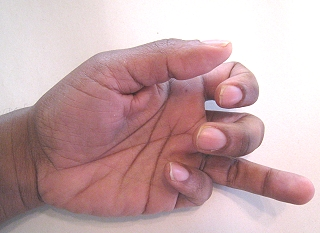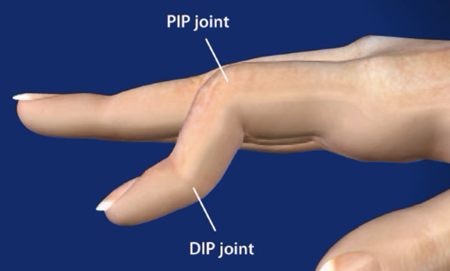The acromion process is a feature of this bone
scapula
This bursa is often inflamed causing impingement
subacromial
The gluteus medius performs this action on the thigh
abduction
This nerve can dislocate as a result of cubitus valgus of the elbow
ulnar
It's the most frequently fractured carpal bone
scaphoid
This is the 'true' shoulder joint
glenohumeral joint
It's the most common type of shoulder dislocation
anterior
Injury caused by a direct blow resulting in a contusion to the iliac crest
hip pointer
The brachialis performs this action on the elbow
flexion
This injury results from jamming the distal interphalangeal joint (DIP)
mallet finger
An athlete complaining of paresthesia in the 4th and 5th digits may have damaged this nerve
ulnar
The clavicle is generally displaced in these directions
superiorly and anteriorly
An acutely shortened thigh may be a sign of a fracture occurring in this bone
femur
This mechanism would sprain the UCL
Valgus force
Rupture of the flexor digitorum profundus tendon results in this deformity
jersey finger
It's the best-protected joint in the human body
hip
The shoulder apprehension test checks for this
Avascular necrosis in the femoral head is a complication accompanying this traumatic injury
hip dislocation
Repetitive forceful extension of the wrist is a mechanism that leads to this injury
lateral epicondylitis
Identify the injury seen here
wrist ganglion
These muscles originated on the lateral epicondyle of the humerus
extensors and supinator
Maximal external rotation of the humerus is achieved in this phase.
Cocking phase
This disease occurs due to the loss of blood circulation to the articular head of the femur in children ages 3 to 12
Legg-Perthes
An adolescent athlete who complains of sudden pain and locking of the elbow joint should be suspected to be suffering from this
OCD, osteochondritis dissecans
Identify the injury seen here